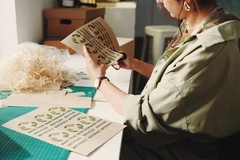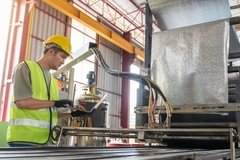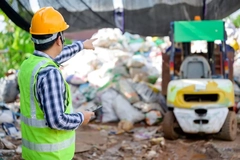Lost in implementation: Illegal single-use plastics rife throughout India, says NGO

31 Jan 2023 --- India imposed a broad single-use plastics (SUP) ban in July 2022. Six months on, PackagingInsights checks the on-ground reality of the ban in conversation with the chief program coordinator at Toxics Link, Priti Mahesh. She highlights a “huge enforcement gap” which, unless tightened, will cause the SUP ban to “fall flat.”
The list of banned items includes earbuds with plastic sticks, plastic sticks for balloons, plastic flags, candy sticks, ice cream sticks, polystyrene (thermocol) for decoration, plastic plates, cups, glasses, cutlery such as forks, spoons, knives, straws, trays, wrapping or packaging films around sweet boxes, invitation cards, cigarette packets, plastic or PVC banners less than 100 microns thick, and stirrers.
“[The government] has to make the enforcement plan much stricter. Yes, there is a ban in place, but there’s a lack of enforcement on the ground – there has to be a lot more sustained enforcement, not sporadic ones. Furthermore, making alternates as viable as plastic needs to be looked into much more closely,” says Mahesh.
“Unless plastic is made more expensive and alternates are made cheaper, there will always be markets where people will continue to use it. SUP has to be unfeasible for people.”
Price gap
She illustrates that a PE bag – commonly used by small shops and vendors – costs about ₹0.10 (US$0.0012), which is significantly cheaper than a cloth or paper bag.
 Plastic straws are illegal as part of the SUP ban in India.“The alternates [to SUP] need to be mapped out much more closely. There’s a need to promote the manufacturing in these industries to scale up because if you’re talking about replacing plastic, which has inflated the whole country, you need to manufacture alternates simultaneously.”
Plastic straws are illegal as part of the SUP ban in India.“The alternates [to SUP] need to be mapped out much more closely. There’s a need to promote the manufacturing in these industries to scale up because if you’re talking about replacing plastic, which has inflated the whole country, you need to manufacture alternates simultaneously.”
Regarding the gaps in implementing the SUP ban she explains: “Where is the production of alternates in that quantity? The capacity of the country to manufacture alternates and the push to start manufacturing at a larger scale through incentives is where support is needed. This is something the governments haven’t done diligently.”
Manufacture, import, stocking, distribution, sale, and use of banned items are punishable by up to five years in jail, a ₹1,00,000 (US$1,200) fine, or both. However, Mahesh recounts that even in Tier 1 cities of India, SUPs are readily available.
“I’ve seen it in a couple of cities now – Delhi, Kolkata, Chennai – SUPs are quite freely available without any fear that they are handing over banned items – the lower quality of PE bags, which are restricted.”
She elucidates that the responsibility also falls on consumers, as they seek out plastic bags from the vendors for their groceries and such.
“There is a cost difference between a PE bag and an alternative. The fact is that vendors get penalized for not having carry bags for the consumer. If they don’t give it, the consumer moves on to the next shop. There has to be an action that deters consumers from asking for single-use bags.”
“It is now illegal to manufacture and sell single-use plastic products. But, unless there is nationwide enforcement of the sporadic activities or state-wise action will not make sense in a country like India. The production stream continues.”
Making alternates feasible Pricing challenges have caused the SUP ban to fail.Mahesh adds that the ban’s implementation and enforcement have floundered in the country.
Pricing challenges have caused the SUP ban to fail.Mahesh adds that the ban’s implementation and enforcement have floundered in the country.
“When the ban started in July, there was a flurry of activities around it. The regulation is framed at the national level, but the implementing agencies are the state bodies. Different state boards initially worked toward creating awareness and looked at the closure of manufacturing units.”
“In terms of major brands and industry players, there has been a shift. But if you look at, on the ground, small vendors and units, plastic, overall, is still very much available and very much being used.”
According to Mahesh, alternative options to single-use products, such as paper or metal straws and cloth or paper bags, are only partially feasible for small vendors, which is the most significant deterrent in moving away from the cheaper single-use items.
“The alternates are not feasible – either in scale or comparative prices. Larger corporations can pass on the cost or absorb those cost differences. But when you look at smaller vendors and establishments, they can’t absorb the cost because, often, the difference is quite steep. That’s the reason why SUP is freely available.”
“Though state governments have spoken about incentivizing and supporting the alternate industry, I don't think there has been substantial action on that,” she concludes.
By Radhika Sikaria










